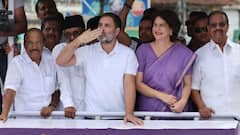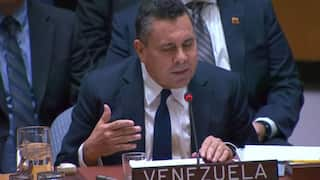Kerala Court Sends Kochi Blasts Accused Dominic Martin To 10-Day Judicial Custody
Kalamassery blast accused Dominic Martin has been sent to a 10-day judicial custody by a Kerala court.

A court in Kerala has sent the lone accused in Kalamassery blast case, Dominic Martin to a 10-day judicial custody. Principal Session Court Judge Honey M Varghese allowed the police's plea for 10-day custody of Martin, according to a PTI report. On October 29, four people were killed while over 50 others were injured in the blast during a prayer meeting of the Jehovah's Witnesses at a convention center in Kalamassery, near Kochi in Kerala. He was previously remanded to judicial custody on October 31.
In its plea, the police submitted that they need to probe the accsued's sources of income, international connections, and other related matters, said the report, adding that he must be taken to certain locations for further collection of evidence,.
Martin, who has once again declined the assistance of a legal aid lawyer, has been booked under Section 302 of the Indian Penal Code (IPC) (Punishment for murder) and Section 3 of the Explosive Substances Act, and relevant sections of the Unlawful Activities Prevention Act (UAPA).
#WATCH | Kerala: Kalamassery blast accused Dominic Martin has been sent to 10 days of judicial custody. pic.twitter.com/AVuq84lu7h
— ANI (@ANI) November 6, 2023
His arrest was formally recorded by the police as he had surrendered a few hours after the blasts on October 29.
Prior to his surrender before the police, Martin released a video stating that the group's preachings were "seditious" and that they did not heed his warnings to change their ways, and that is why he carried out the attack.
ALSO READ: Karnataka Official Murder: Driver Sacked By Prathima Last Week Prime Suspect In Case, Arrested
Meanwhile, the Christian religious group, Jehovah's Witnesses resumes prayer meetings on Sunday after holding online gatherings following the shocking incident, stated another PTI report.
The religious group — which traces its origins to 19th century America — decided to hold physical prayer meetings to remove any fear from its members' minds following the blasts, the report added.
Related Video
Threatening tweet on Atique Ahmed came from Jammu and Kashmir's poonch | Abp news





































